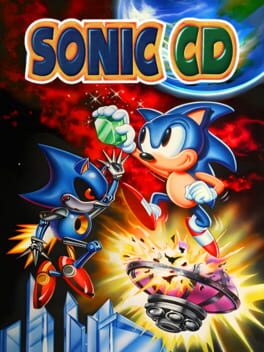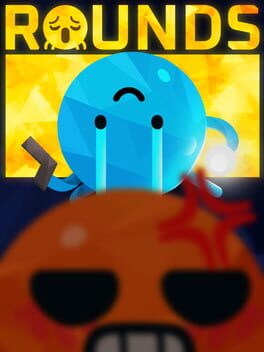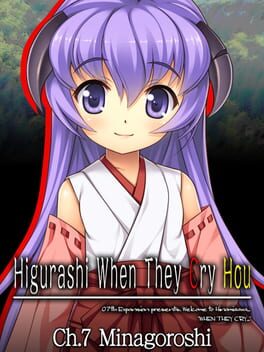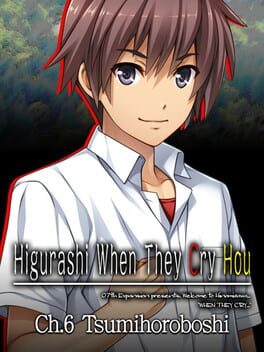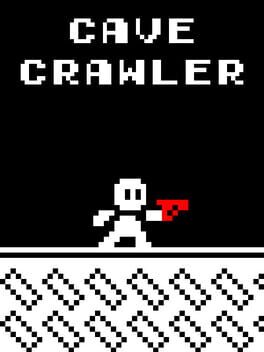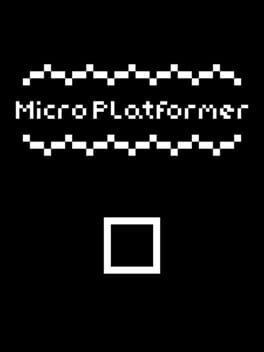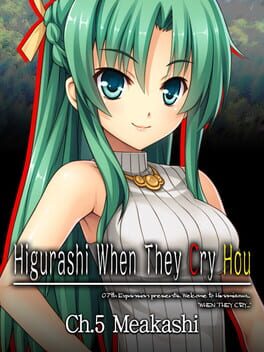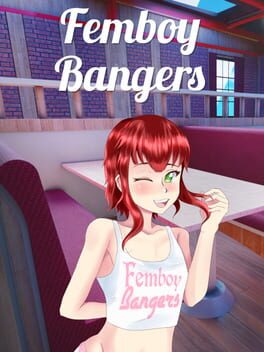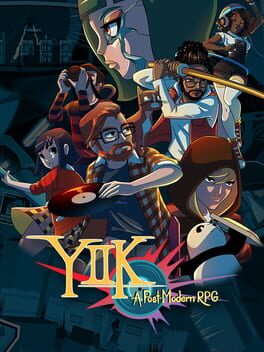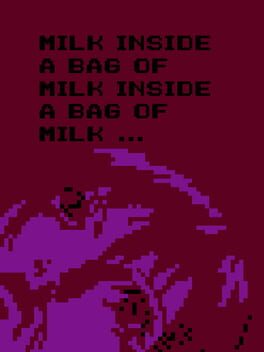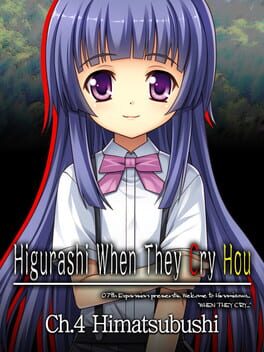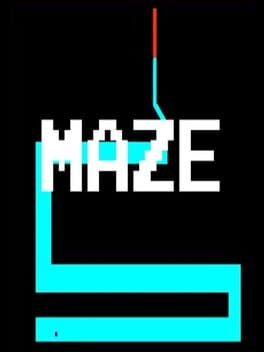ktoq
2009
Algodoo is probably the best sandbox to ever do it. I've tried a few physics based sandboxes but none of them really encourage you to tinker to the length or breadth that Algodoo does, it's just fun to whip random stuff together in it. This and the online capabilities make this game a very fun game to just let your mind run free in
2021
1993
It is wild how much my nostalgia for this game - and the Sonic series as a whole - marred my view of this game. I've been going through this recently, and honestly this game isn't very good. It's constantly at odds with itself. The marketing of Sonic is that you're supposed to go fast - blast processing and all that - but when you do this you ram into some random thing you could not have possibly seen every 5 seconds. I had the most fun playing as Tails and moving through each stage like a paranoid tank. This partly solved the issue but you're still completely subject to the stage. There could probably be another fulfillment out of this game by say, looking at the full map and making a route to go on as Sonic, but given how zoomed in the camera is this was clearly not what the designers had in mind when making this game.
If I can give it anything, the soundtrack (like in most Sonic games) is great, and there are some pretty good boss battles as well.
If I can give it anything, the soundtrack (like in most Sonic games) is great, and there are some pretty good boss battles as well.
2021
I don't know if this works for or against the game, but I read the first chapter, took a break, then read the rest of the game in one continuous 9 and a half hour session. I suppose it's nice that it could pull me in like that, considering most of the plot points are built around resolving hanging plot threads rather than holding much intrigue into itself. Minagoroshi feels like a very transitional chapter to me (as did Tsumihoroboshi, but it felt much more "contained" to me as well) and I'm sure that my opinion of this will change wildly depending on how Matsuribayashi gets along with it.
This review contains spoilers
I remember being a bit disappointed as I initially mulled over the details and implications of Meakashi in my head after I finished it. It was a good part, don't get me wrong; the transition from paranormal horror to devastation and melodrama was very well done - but I didn't like how it reflected upon Watanagashi. Previously my favourite arc due to how it portrays the weight on the shoulders of Mion Sonozaki (my favourite character in the series), Meakashi replaced this motivation with the all well and good - but less compelling and thematically consistent with the rest of the series - struggle with Shion's relationship with Satoshi after his death. I was scared that this could be a running theme along the answer arcs - the denigration of previous plot threads in the name of some different service - but luckily I was proven wrong.
Other parts of Higurashi have had cold opens before, but they all usually entail some out-of-context horrific act occuring before us. Tsumihoroboshi is a wild detour from this - the cold open takes us to the dumpster which Rena loves so much. The sky is an unnatural pink - and the mood in the air is uncertain. There is a feeling of bittersweet camaraderie in the air in this short prologue, like the feeling you'd get seeing a friend as a kid for the last time before they move away. You know it, they know it - but there is nothing to do at that point but look behind you at all the good times.
From what little I've engaged with the wider Higurashi community, the slice-of-life segments seem to be a malign figure when talking about the series - and are often presented as necessary evils for the "slow burn" horror that a lot of the episodes go for in the more charitable analyses. Though their mileage can definitely vary by episode (the slice-of-life segments in Onikakushi feel particularly weak and miscellaneous compared to any other part) I feel like they are always vital; they are often enjoyable and knowing how these characters tick does a lot more for the series' gravitas than just making it scarier when their eyes go weird. I bring this up primarily because the slice-of-life segments in Tsumihoroboshi are just amazing. Especially riding off the back of Meakashi - which on account of how the timeline is split up doesn't really have a lot of time to let us steep in character interactions - the game beginning with this strangely lovely interaction in the dumpster followed by a water gun fight almost transcendentally fun for its participants was very refreshing and set up how the plot's unravelling would contrast with Meakashi (and Onikakushi to a lesser extent).
Another thing you immediately notice right away are the improvements in the engine (or perhaps, just an increased attention to detail within it) - there are zooms, flashes, quicker transitions and different shots using the character sprites - it's a visual novel so there isn't a lot they can do with this but it helps pull you into the feelings of the characters with a bit more ease. Rena's perspective text in particular was effective; the gradient from a pale pink to a sheer crimson throughout the story marks her descent very effectively and is subtle enough that as it began to happen I wasn't even sure if it was really there or just me - surely an intentionally feature.
Story-wise it feels, at least to me, a lot more like a question arc than an answer arc in execution. Probably just because the very open-and-shut Meakashi is the only other one I've read, but the way it sprinkles resolutions with further seeds of questions felt like the perfect balance to me - very reminiscent of how I felt first discovering about Oyashiro-sama's curse in the very first arc as Keiichi descended into paranoia.
On the topic of Keiichi's paranoia in Onikakushi I felt like they treated it with a lot more respect than Meakashi did Watanagashi. The resolution provided in Tsumihoroboshi is relevant to both Onikakushi and Tsumihoroboshi's overall themes - the characters who descend into madness are usually the ones unwilling to hear anyone out, and people are at their best when they work together and understand one another. The ending almost felt corny and absurd in its delivery of this but I think it ended up feeling really sweet by the end of the mainline story.
And yet, despite this, so much is brought up in Tsumihoroboshi that I'm so excited to see wrap up in the last two arcs. In particular, Miyo and Rika seem to have a lot more to do in the last two arcs - Miyo seems to be a harbinger of doom in all the arcs but her present is especially strongly felt in these last 2 answer arcs as her notes on Hinamizawa always seem to work as some sort of catalyst. Rika and Keiichi noticing other timelines seems to be a strange concept with a lot of potential too; I always just kinda accepted it as a "petri dish" kind of situation where each arc was just the same background scenario with ever-so-slightly different starting conditions but even that seems like it could collapse as we approach the end.
As I see it, Tsumihoroboshi combines everything there is to love about the previous 5 arcs into an equally heartwarming, heartbreaking and horrifying look into some very hurt people in a very hurt town. Pretty much tied with Watanagashi for my favourite arc to go through at the moment.
Other parts of Higurashi have had cold opens before, but they all usually entail some out-of-context horrific act occuring before us. Tsumihoroboshi is a wild detour from this - the cold open takes us to the dumpster which Rena loves so much. The sky is an unnatural pink - and the mood in the air is uncertain. There is a feeling of bittersweet camaraderie in the air in this short prologue, like the feeling you'd get seeing a friend as a kid for the last time before they move away. You know it, they know it - but there is nothing to do at that point but look behind you at all the good times.
From what little I've engaged with the wider Higurashi community, the slice-of-life segments seem to be a malign figure when talking about the series - and are often presented as necessary evils for the "slow burn" horror that a lot of the episodes go for in the more charitable analyses. Though their mileage can definitely vary by episode (the slice-of-life segments in Onikakushi feel particularly weak and miscellaneous compared to any other part) I feel like they are always vital; they are often enjoyable and knowing how these characters tick does a lot more for the series' gravitas than just making it scarier when their eyes go weird. I bring this up primarily because the slice-of-life segments in Tsumihoroboshi are just amazing. Especially riding off the back of Meakashi - which on account of how the timeline is split up doesn't really have a lot of time to let us steep in character interactions - the game beginning with this strangely lovely interaction in the dumpster followed by a water gun fight almost transcendentally fun for its participants was very refreshing and set up how the plot's unravelling would contrast with Meakashi (and Onikakushi to a lesser extent).
Another thing you immediately notice right away are the improvements in the engine (or perhaps, just an increased attention to detail within it) - there are zooms, flashes, quicker transitions and different shots using the character sprites - it's a visual novel so there isn't a lot they can do with this but it helps pull you into the feelings of the characters with a bit more ease. Rena's perspective text in particular was effective; the gradient from a pale pink to a sheer crimson throughout the story marks her descent very effectively and is subtle enough that as it began to happen I wasn't even sure if it was really there or just me - surely an intentionally feature.
Story-wise it feels, at least to me, a lot more like a question arc than an answer arc in execution. Probably just because the very open-and-shut Meakashi is the only other one I've read, but the way it sprinkles resolutions with further seeds of questions felt like the perfect balance to me - very reminiscent of how I felt first discovering about Oyashiro-sama's curse in the very first arc as Keiichi descended into paranoia.
On the topic of Keiichi's paranoia in Onikakushi I felt like they treated it with a lot more respect than Meakashi did Watanagashi. The resolution provided in Tsumihoroboshi is relevant to both Onikakushi and Tsumihoroboshi's overall themes - the characters who descend into madness are usually the ones unwilling to hear anyone out, and people are at their best when they work together and understand one another. The ending almost felt corny and absurd in its delivery of this but I think it ended up feeling really sweet by the end of the mainline story.
And yet, despite this, so much is brought up in Tsumihoroboshi that I'm so excited to see wrap up in the last two arcs. In particular, Miyo and Rika seem to have a lot more to do in the last two arcs - Miyo seems to be a harbinger of doom in all the arcs but her present is especially strongly felt in these last 2 answer arcs as her notes on Hinamizawa always seem to work as some sort of catalyst. Rika and Keiichi noticing other timelines seems to be a strange concept with a lot of potential too; I always just kinda accepted it as a "petri dish" kind of situation where each arc was just the same background scenario with ever-so-slightly different starting conditions but even that seems like it could collapse as we approach the end.
As I see it, Tsumihoroboshi combines everything there is to love about the previous 5 arcs into an equally heartwarming, heartbreaking and horrifying look into some very hurt people in a very hurt town. Pretty much tied with Watanagashi for my favourite arc to go through at the moment.
2022
2020
I was really excited going into Meakashi; I loved the way Shion interacted with a lot of the cast and I was excited to see a chapter about her. I wasn't sold at first - the first few parts are quite inconsistent in quality - but what comes after is a series of moments that just hit you like a truck. Probably the first Higurashi entry to go for downright devastation as opposed to horror - being the first of the 'answer arcs' it can't lean as heavily on the intrigue of the world as the 4 arcs before it - but it fits this mould very well while elucidating previous parts very effectively and leaving just enough breadcrumbs to pull me into the next part as all the parts prior have.
I don't think I played the game that this page is for. There's a lot of neat RPG mechanics, and the story and atmosphere have their moments, even if they can be slow or cringeworthy at times. It could be a lot better, but it could be a lot worse. Word for the wise, turn off the dialog volume and read it with your friends. Fun times abound.
2016
Neat to think about conceptually; a character imagining themselves as a visual novel character in a visual novel as a grounding mechanism is cool in a "Haruhi" sort of way. Sadly nothing about the game is exceptional, and it is far too short to leave any sort of emotional impact as I played it.
Additionally, it should not have Steam achievements. No game based primarily around a narrative should have achievements. Having any kind of completion marks in a game like this makes the narrative choices after you beat the game less fuelled by curiosity and moreso by that urge to easily 100% the game. If classics like Undertale and OFF can call into question the player's agency and choices in-game so effectively without achievements, anything should and could try to follow.
Additionally, it should not have Steam achievements. No game based primarily around a narrative should have achievements. Having any kind of completion marks in a game like this makes the narrative choices after you beat the game less fuelled by curiosity and moreso by that urge to easily 100% the game. If classics like Undertale and OFF can call into question the player's agency and choices in-game so effectively without achievements, anything should and could try to follow.
Riding off the end of Tatarigoroshi I was excited to play as Shion in the upcoming game, and was a bit confused looking at the list of chapters and seeing Himatsubushi up next. I was a bit sad to not be able to play as Shion but Himatsubushi was an interesting aside to the main Higurashi story that manages to reveal yet another layer of deeper workings behind the events of each game. As other reviewers pointed out the horror of the series is in viewing the shifting psychological states of the cast and the briefness and lack of viscera pretty much makes the events of the story very surface-level in comparison to prior entries in the series. As Rena points out in the after-party this is the final game in the first half of the series - referred to as the "Question Arcs", and with a large amount of the intrigue of the plot being due to the malleable subtext, there is a large risk in paying things off in too concrete a way as an "Answer Arc" may imply. But, I am very excited for Meakashi and have faith that everything will turn out alright.
2003


